Text
02/28/2021
To all those who are following me, I am sorry that I don’t post often...but I still want y’all to have a great day, week, month, and year! ❤️
Quote of the day: “Those who don’t have a dream, it’s okay,it’s okay if you don’thave a dream. You just have to be happy.” -Min Yoongi
15 notes
·
View notes
Text
new pronouns just dropped:
- “he” in the way you call an animal you don’t know the gender of “a little guy”
- “she” in the way sailors refer to their boats
- “they” in the way people say “they say that ___”, a faceless and all knowing collective. you are anything, you are everything.
114K notes
·
View notes
Photo
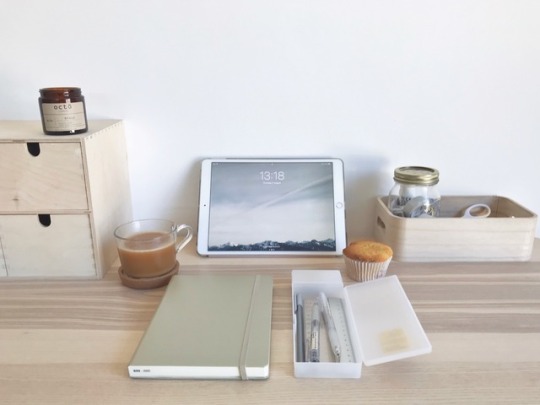
Sitting down with some chai tea + one of my homemade raspberry muffins to do some journaling.
11K notes
·
View notes
Text
what’s going on in india?
hi- i sincerely apologize if this is annoying but i’d really hope to raise awareness on what’s going on in india right now! basically modi has passed 3 new reform laws which makes it extremely difficult for farmers; the backbone of india’s economy; to make money. essentially private companies now buy directly from farmers rather than the government having a set price on crops grown by kisaans (farmers) all year long. thus leading to a significantly lower income. overtime many farmers will go into extreme debts and would be incapable of supporting their families. 65 farmers in punjab have already taken their lives since this bill was passed.
there have been peaceful protests in delhi where many sikhs and punjabis (as well as farmers from other states and religions) are fighting for their livelihood back, however the police brutality that they are currently facing is unfathomable. they are getting shot with water cannons and tear gases for protesting against bills that make it borderline impossible for them to live.

3/4 of punjabs population are farmers, my own immediate and distant family are currently out protesting and are being actively impacted by this.
you can donate to khalsa aid right here! they are providing protesters with food and water!
you can purchase from kisaani.co! all their profits are sent directly to the kisaans in need.
i apologize for such a long post but not enough people are talking about this and i really hope that if you have the means you donate or share the links so it reaches someone who might be able to. thank you :)
11K notes
·
View notes
Text

11/17/2020
Hello! I am back with BTS and Math 💜😌✌🏽 How r u all???
I am so excited there is only a couple of weeks left before fall sem is over!!
R y’all’s classes almost over?
Quote of the week: “You will face many defeats in life, but never let yourself be defeated”-Maya Angelou
#study#study aesthetic#studyblr#studyinspo#studyrightonight#studyspiration#repost#study like hermione#studytonight#studytoshowthyselfapproved#bts#be bts#math#be album#precalculus#almost end of sem#can’t wait#this week’s quote#quote#quotes#this is for you
7 notes
·
View notes
Photo


I find these carrels with views over Bloomsbury completely irresistible. I had a really productive morning here looking through philosophy periodicals (and daydreaming about living in those terraces)
31K notes
·
View notes
Text

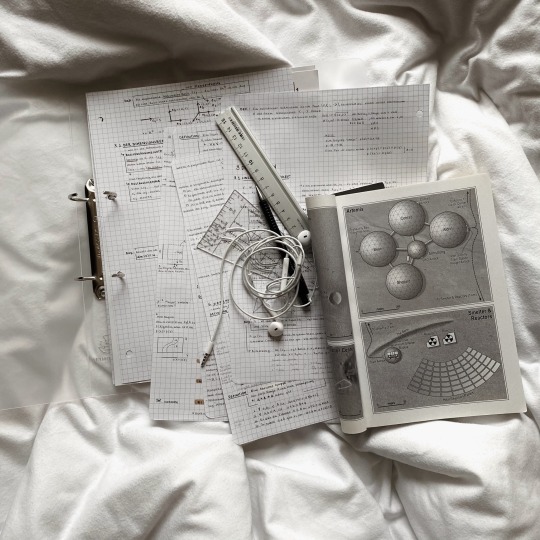
this week felt like an eternity with all the stuff that is going on lately.
858 notes
·
View notes
Text
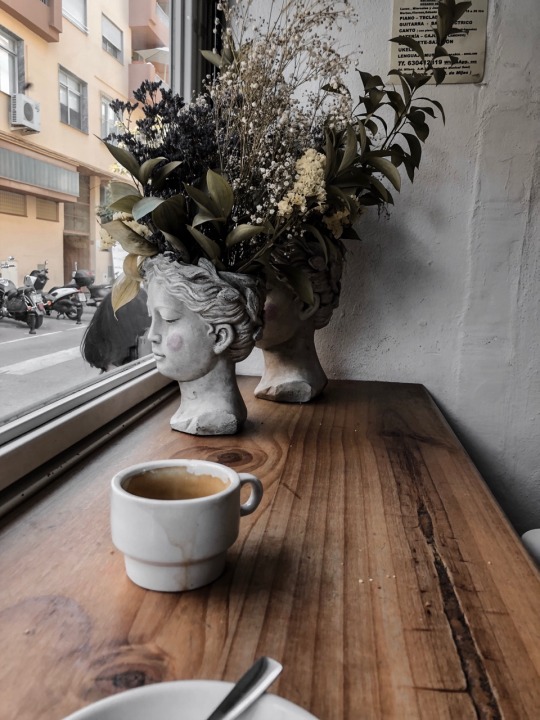
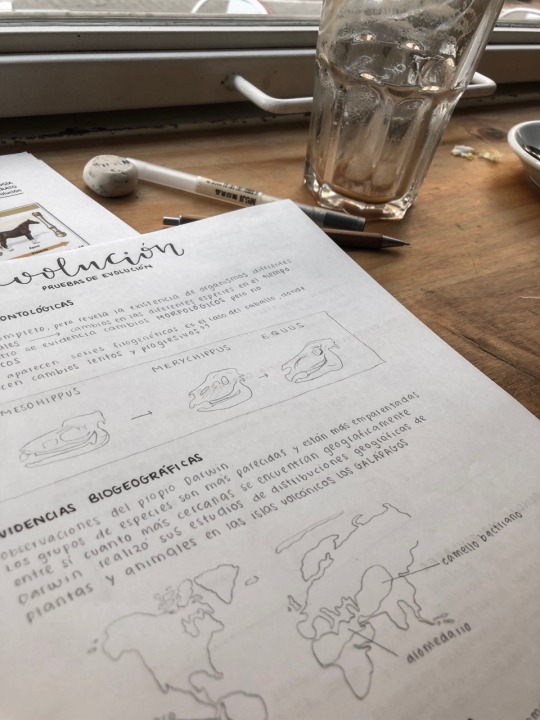
Study marathon 1/13
Revising theories of evolution and then heading over to the realm of physics and maths. Inspiring quote of the day:
Assiduity, it means sit down until you do it. Commit yourself to your work and study.
Lucas Remmerswaal
9K notes
·
View notes
Text


29.10.2020.
some spanish lit notes!!! (u can kind of see the ones underneath that i took during my zoom class and those are so ugly lol)
213 notes
·
View notes
Text


One of the most incredible examples of Our Lady of Sorrows I have ever seen.
4K notes
·
View notes
Text
who cares if I’m pretty if I fail my finals??
47 notes
·
View notes
Text



02.11.2020.
some pics from my old art journal!!! also i’m making my weekly planner, so i’ll probably post a pic of that tomorrow. i hope that you guys are having a good day!!!
273 notes
·
View notes
Text


9.12.2020 | i like my college classes a lot but it’s always nice to have no school for the weekend ☺️ thursday was an incredibly tiring day. i had non-stop video calls from 9 am to 6 pm for all my classes, TA sections, and ministry small group. small group was fun though, so I’m glad i signed up.
13 notes
·
View notes
Photo
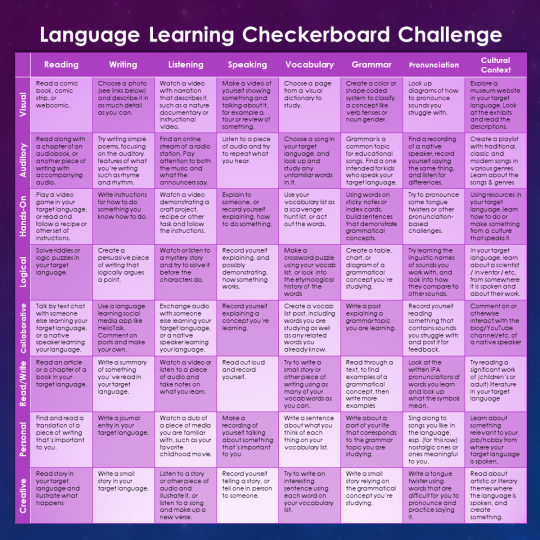
Hi everyone! I just finished the 100 Days Of Languages challenge and I wanted to do something new afterwards, so I came up with a challenge of my own! I’m calling this the Checkerboard Challenge because it’s an 8x8 grid. Along the top there are eight language-related skills, and on the side there are eight modes of learning, so each box contains a way to study a particular skill using a particular mode. I wanted to do that because exposing yourself to the same information in different contexts is so helpful for learning and I wanted to apply that to how I study Portuguese. The result is a list of 64 different ways to study languages, 71 if you include the alternate options listed below, each one versatile enough to be repeated as often as you want using different topics or resources and hopefully interesting and useful for your learning.
Ways To Use This Challenge
Complete all of the challenges on the table, in whatever order you want.
Choose a particular skill you’d like to work on. Complete all of the challenges in that column.
Choose a particular method of learning that works well for you. Complete all of the challenges in that row.
Use dice or a random number generator to pick a challenge to do every day, and see how long it takes you to get bingo or connect four or something.
Choose whichever of the challenges sound useful to you and incorporate them into your regular studying routine.
There’s no obligation to post anything you make; even when I say to record yourself doing something, that can just be for your own future reference. (It’s recommended for the collaborative tasks that focus on creating resources that would be useful to other learners or interacting on social media, but even then you can just write the posts/comments and not post them if you prefer) However, I would love to see anything you do want to share, or any updates on your progress, so you can post anything like that with the tag “checkerboard challenge” which is also where I will be posting the tasks I complete.
The tasks are listed below, with more detail than what would fit in the boxes.
Reading
(Visual) Read a comic book, comic strip, or webcomic in your target language. Depending on your skill level and the amount of time you have, you can choose anything from a single strip of a newspaper comic to a full-length graphic novel
(Auditory) Read along with a chapter of an audiobook, or another piece of writing with accompanying audio. Some language learning websites have articles with recordings of native speakers reading them. If you want, or if you can’t find anything else, you could even use a song and its lyrics.
(Hands-On) Option 1: Play a video game in your target language. This can be a computer or console game, or an app on your phone or even a little browser game. Check the language options on games you already have to see if your target language is available, or if not, many free games have lots of language options. / Option 2: Read and follow a recipe or another set of instructions, such as an art/craft tutorial, the rules to a board or card game, a DIY project or a magic trick.
(Logical) Solve riddles or logic puzzles in your target language. (Alternate: Read a short mystery story such as a minute mystery (or something longer if you prefer) and see if you can solve it before the characters do.)
(Collaborative) Talk by text chat with someone else learning your target language, or a native speaker learning your language.
(Read/Write) Read an article or a chapter of a book (or the whole thing) in your target language. It can be about any topic, and can be a children’s or adult’s book depending on your skill level and preference.
(Personal) Find and read a translation of a piece of writing that’s important to you, such as your favorite book as a kid that you feel nostalgic for, or a poem that resonates with you.
(Creative) Read story in your target language and illustrate what happens. The quality of the drawing isn’t important unless you want it to be; the important thing is to help you process what you’re reading.
Writing
(Visual) Choose a photo, either at random from a generator or by choice on a website like Unsplash, and describe it in as much detail as you can. Your description can focus just on describing visible details in the image, or you can make up contexts for and stories around the things you see, whichever you prefer. (Alternate: Do this with a physical object nearby instead of a photo.)
(Auditory) Try writing simple poems, focusing on the auditory features of what you’re writing such as rhyme and rhythm. You can use a rhyme dictionary to expand your vocabulary in an interesting way while you’re working on this. It’s not necessary to worry too much about the artistic quality of the poems unless you want to.
(Hands-On) Write instructions for how to do something you know how to do, such as recipe, a life skill, a game or sport, an art of craft project, or even your method of language learning.
(Logical) Create a persuasive piece of writing that logically argues a point. It doesn’t have to be about a serious or controversial topic. For example, you can defend your prediction for the next season of your favorite show, or what would happen if some fantasy or sci-fi concept were real (maybe a good way to practice the conditional tense if you’re studying a language that has one), or why your best friend is awesome.
(Collaborative) Use a language learning social media app like HelloTalk. Comment on posts and make your own.
(Read/Write) Write a summary of something you’ve read in your target language. You can either read in your native language and summarize in your target language, or do both parts in your target language.
(Personal) Write a journal entry in your target language, talking about how your day or week has been or what you are thinking and feeling. (Alternate: Write about one of your memories.)
(Creative) Write a small story in your target language. It can be about whatever you want, and it doesn’t have to be very long or detailed. You can (option 1) write it as prose, which could be better to practice description and narration or to focus on a particular verb tense, or in (option 2) a script style which could be better to practice conversational language.
Listening
(Visual) Watch a video with narration that describes it, such as a nature documentary, an instructional video such as a cooking video, or a video reviewing something.
(Auditory) Find an online stream of a radio station. Pay attention to both the music and what the announcers say.
(Hands-On) Watch a video demonstrating a craft project, recipe or other task and follow the instructions.
(Logical) Watch or listen to a mystery story and try to solve it before the characters do. This can be a whole movie or novel-length audiobook if you want, but it doesn’t have to be; even an episode of something like Scooby Doo should work.
(Collaborative) Exchange audio with someone else learning your target language, or a native speaker learning your language.
(Read/Write) Watch a video or listen to a piece of audio and take notes on what you learn.
(Personal) Watch a dub of a piece of media you are familiar with, such as your favorite childhood movie.
(Creative) Option 1: Listen to a story or other piece of audio and illustrate it. / Option 2: Listen to a song and make up a new verse.
Speaking
(Visual) Make a video of yourself showing something and talking about it, for example a tour of your home or neighborhood, a review of something, or a video about your pet.
(Auditory) Listen to a piece of audio and try to repeat what you hear. You don’t have to pause after every word and repeat it, it’s probably better to go at least sentence by sentence or with parts even longer so you can keep things in context.
(Hands-On) Explain to someone, or record yourself explaining, how to do something, possibly while demonstrating.
(Logical) Record yourself explaining, and possibly demonstrating, how something works, such as a science concept.
(Collaborative) Record yourself explaining a concept you’re learning, like a grammar topic or how to use a particular word.
(Read/Write) Read out loud and record yourself.
(Personal) Make a recording of yourself talking about something that’s important to you or a memory or anecdote you have. (Alternate: Make a vlog entry (even if you don’t have a vlog to put it on) talking about your day.)
(Creative) Record yourself telling a story, or tell one in person to someone.
Vocabulary (Most of these, with the exception of the first two, can be done with any vocabulary list you want.)
(Visual) Choose a page from a visual dictionary to study. One way you can do this is by studying the words and then covering the labels with sticky notes or whiting them out on a copy and trying to fill in the blanks.
(Auditory) Choose a song in your target language, and look up and study any unfamiliar words in it.
(Hands-On) Option 1: Use your vocabulary list as a scavenger hunt list. This works well if you have a lot of nouns and adjectives on the list. For everyday household items, you can look for the literal items on the list, while if they’re more obscure you can look for pictures or other representations of them. / Option 2: Act out the words on your list. This works well for verbs and adverbs, as well as more abstract nouns or adjectives like emotions. You can record video of yourself doing this and later look back at the video to try to guess the words.
(Logical) Option 1: Make a crossword puzzle using your vocab list. If you write the words and clues, there are tools online that will build the puzzle itself for you, or you can do that by hand on graph paper if you prefer. You can either wait a while and then solve your own puzzle to see how much you remember, or give it to another language learner to solve an ask them to make one for you to solve. / Option 2: Look into the etymological history of the words to find out why they mean what they mean and whether they have any connections to words in your own language.
(Collaborative) Create a vocab list post around a theme, including words you are studying as well as any related words you already know. Include any resources that you think would be useful to someone using the list, such as sample sentences, pictures, or whatever else you want.
(Read/Write) Try to write a small story or other piece of writing using as many of your vocab words as you can.
(Personal) Write a sentence about what you think of each thing on your vocabulary list.
(Creative) Try to write an interesting sentence using each word on your vocabulary list. (Alternate: Illustrate each word on your vocabulary list. You can do this on index cards if you want, to make illustrated flash cards.)
Grammar
(Visual) Create a color or shape coded system to classify a concept like verb tenses or noun gender. For example, you can read through a piece of text and highlight all of the verbs using a different color for each tense, or you can make flash cards with your vocabulary words and mark them with different symbols depending on the gender.
(Auditory) Grammar is a common topic for educational songs. Find a one intended for kids who speak your target language.
(Hands-On) Using words on sticky notes or index cards, build sentences that demonstrate grammatical concepts. If you have access to some of those little word magnets in your target language, those would probably work great for this, but if not (and I know I don’t) you can write various words, affixes, etc. on index cards or sticky notes, or use your existing flashcards if you have them.
(Logical) Create a table, chart, or diagram of a grammatical concept you’re studying.
(Collaborative) Write a post explaining a grammar topic you are learning.
(Read/Write) Read through a text, to find (and maybe highlight, circle, etc.) examples of a grammatical concept, then write more examples.
(Personal) Write about a part of your life that corresponds to the grammar topic you are studying. For example, for the future tense, you can write about your plans or hopes.
(Creative) Write a small story relying on the grammatical concept you’re studying.
Pronunciation
(Visual) Look up diagrams of how to pronounce sounds you struggle with. These can be found as images or in an animated form in YouTube videos, and usually show what your tongue, teeth, etc. are supposed to be doing when you pronounce the sound.
(Auditory) Find a recording of a native speaker, record yourself saying the same thing, and listen for differences.
(Hands-On) Try to pronounce some tongue twisters or other pronunciation-based challenges.
(Logical) Try learning the linguistic names of sounds you work with, and look into how they compare to other sounds. Wikipedia has articles about the different sounds that can exist in languages and tables showing how they are used in various languages.
(Collaborative) Record yourself reading something that contains sounds you struggle with and post it for feedback, possibly on an app like HelloTalk.
(Read/Write) Look at the written IPA pronunciations (these can be found on Wiktionary) of words you learn and look up what the symbols mean.
(Personal) Sing along to songs you like in the language, especially (for the personal category) nostalgic ones or ones meaningful to you.
(Creative) Write a tongue twister using words that are difficult for you to pronounce and practice saying it.
Cultural Context
(Visual) Explore a museum website in your target language. The museum should be located somewhere where your target language is spoken, but it up to you whether you want to look at an art museum, a science or history museum, or something else. Look at the exhibits and read the descriptions.
(Auditory) Create a playlist with traditional, classic and modern songs in various genres that either were invented in or popular in a place where your target language is spoken. Ideally using resources in your target language, learn about the songs and genres.
(Hands-On) Using resources in your target language, learn how to do or make something from a culture that speaks it. For example, you can look up a recipe, a tutorial for a dance style, the rules to a game, or how to make an art or craft project. (Make sure the thing you pick is being openly shared by members of the culture it came from.)
(Logical) In your target language, learn about a scientist / inventor / etc. from somewhere the language is spoken. Learn about their work, with explanations of what they invented or discovered, and if you want, find out other information about their life too.
(Collaborative) Comment on or otherwise interact with the blog/YouTube channel/etc. of a native speaker, after you read or watch it, of course. (You don’t need to receive a reply to check off this box, because that part is not under your control.)
(Read/Write) Try reading a significant work of (children’s or adult) literature in your target language.
(Personal) Learn about something relevant to your job/hobby from where your target language is spoken, using resources in the language.
(Creative) Read about artistic or literary themes, movements or eras where the language is spoken, and create something (it can be something simple) using those concepts.
[Image: The title “Language Learning Checkerboard Challenge” above a purple 8x8 table. The information contained in the table is repeated above.]
3K notes
·
View notes
Text
10/28/2020
Another essay...another ✨aesthetic✨
It really is spooky season🙄 with the piling essays and tests!
Hope y’all had a great mid term!
Also it’s been a while how r y’all doing??
Quote of the day:
“I know for sure what we dwell on is who we become.” -Oprah Winfrey
#study#study aesthetic#studyblr#studyinspo#studyrightonight#studyspiration#study like hermione#studytonight#studytoshowthyselfapproved#study tips#studyspo#stay healthy#student#sorry#no post#new day#new post#❤️#oprahwinfrey#optimistic
8 notes
·
View notes
Photo

Title
Pearl
Photographer: Kirsi Mutshipule
Finland
ND Awards 2019
46K notes
·
View notes
